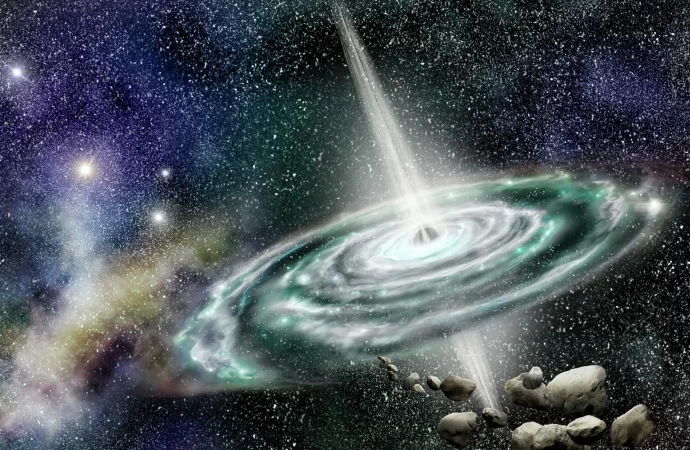Gravitational physics, a fundamental branch of physics, delves into the nature of gravity, its effects on matter, and its role in shaping the universe. Understanding gravitational phenomena is crucial for unraveling the mysteries of the cosmos. Historical Developments In the 17th century, Sir Isaac Newton formulated the law of universal gravitation, providing a mathematical framework
Gravitational physics, a fundamental branch of physics, delves into the nature of gravity, its effects on matter, and its role in shaping the universe. Understanding gravitational phenomena is crucial for unraveling the mysteries of the cosmos.
Historical Developments
In the 17th century, Sir Isaac Newton formulated the law of universal gravitation, providing a mathematical framework to describe the attraction between masses. This groundbreaking theory paved the way for understanding the motion of celestial bodies.
In the early 20th century, Albert Einstein revolutionized our understanding of gravity with his theory of general relativity. This theory describes gravity as the curvature of spacetime caused by mass and energy, offering profound insights into the nature of space, time, and gravitation.
The Role of Gravity in the Universe
Gravity plays a pivotal role in the formation and evolution of celestial bodies. From the birth of stars to the formation of galaxies, gravitational interactions sculpt the cosmos. Moreover, the recent detection of gravitational waves, ripples in spacetime caused by violent cosmic events, has opened new avenues for studying the universe.
Gravitational Physics

Image by : Yandex
Gravitational physics finds practical applications in various fields, including space exploration. Understanding gravitational forces is essential for designing spacecraft trajectories and conducting missions to other celestial bodies.
Furthermore, gravitational physics helps in unraveling the mysteries of black holes, enigmatic objects with gravitational pull so strong that not even light can escape. By studying the behavior of matter around black holes, scientists gain insights into the extreme conditions of spacetime.
Additionally, gravitational physics enables astronomers to predict and study cosmic phenomena, such as the merging of galaxies and the formation of massive structures in the universe.
Challenges and Frontiers
Despite significant advancements, gravitational physics faces challenges. One of the major quests in modern physics is to unify gravity with other fundamental forces, such as electromagnetism and the strong and weak nuclear forces. The pursuit of a theory of everything, which seamlessly integrates all forces of nature, remains a frontier of gravitational research.
Moreover, exploring the quantum aspects of gravity poses another intriguing challenge. Understanding how gravity behaves at the smallest scales of spacetime, where quantum effects become significant, is essential for developing a complete theory of gravity.
Conclusion
Gravitational physics serves as a gateway to understanding the marvels of the universe. From the grandeur of cosmic structures to the intricacies of spacetime, gravity shapes our cosmic landscape in profound ways. By studying gravitational phenomena, we deepen our comprehension of the cosmos and our place within it.
FAQs
What is gravitational physics?
Gravitational physics is a branch of physics that studies the nature of gravity and its effects on matter and spacetime.
How does gravity influence the formation of celestial bodies?
Gravity plays a crucial role in the formation and evolution of stars, galaxies, and other cosmic structures by attracting matter and shaping their trajectories.
What are gravitational waves, and why are they significant?
Gravitational waves are ripples in spacetime caused by the acceleration of massive objects. Their detection provides a new tool for studying the universe, offering insights into phenomena such as black hole mergers and neutron star collisions.
Why is unifying gravity with other fundamental forces important?
Unifying gravity with other forces is essential for developing a complete theory of physics that can describe all phenomena in the universe consistently.
How does gravitational physics contribute to space exploration?
Gravitational physics helps in designing spacecraft trajectories, understanding the behavior of celestial bodies, and predicting gravitational interactions during space missions.
















